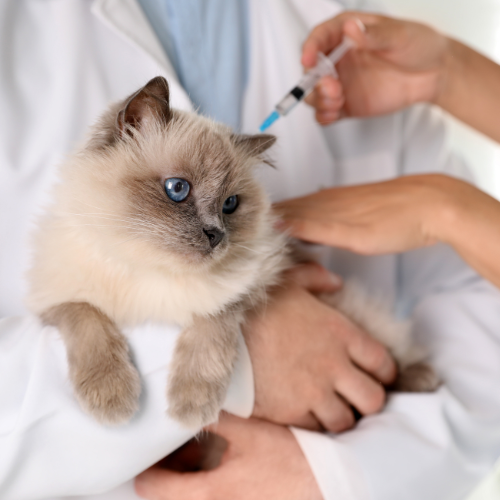
The Importance of Regular Deworming for Cats: Safeguarding Feline Health
Deworming is a critical aspect of maintaining a cat's health and well-being, playing a pivotal role in protecting them from the detrimental effects of internal parasites. This article delves into why regular deworming is essential for cats, emphasizing the recommended frequency and the significance of veterinary involvement in establishing a deworming schedule tailored to each cat's specific needs.
Preventing Parasitic Infections:
Internal parasites, such as roundworms, tapeworms, hookworms, and heartworms, pose significant health risks to cats. These parasites can cause a range of symptoms, including digestive disturbances, anemia, weight loss, and even life-threatening conditions like heartworm disease. Regular deworming helps prevent the establishment of parasitic infections, safeguarding the overall health and vitality of cats.
Recommended Frequency of Deworming:
The frequency of deworming for cats depends on various factors, including their age, lifestyle, and risk of exposure to parasites. Kittens, for instance, are often dewormed more frequently than adult cats due to their increased susceptibility to parasitic infections. Generally, veterinarians recommend deworming kittens every two to three weeks until they reach three months of age, followed by regular deworming every three to six months for adult cats.
Tailoring Deworming Schedules:
While general guidelines exist for deworming frequency, it's essential to recognize that each cat's circumstances may differ. Factors such as outdoor access, exposure to other animals, and geographical location can influence a cat's risk of encountering parasites. As such, veterinary involvement is crucial in determining an appropriate deworming schedule tailored to the individual cat's needs.
The Role of Veterinary Guidance:
Veterinarians play a vital role in guiding cat owners on the most effective deworming strategies for their pets. During routine wellness exams, veterinarians assess a cat's overall health and risk factors for parasitic infections. Based on this assessment, they can recommend an appropriate deworming protocol, which may include the use of specific deworming medications or preventive products.
Ensuring Safe and Effective Treatment:
In addition to recommending the appropriate deworming schedule, veterinarians ensure that deworming treatments are administered safely and effectively. They can provide guidance on the correct dosage and administration technique, minimizing the risk of adverse reactions or incomplete parasite elimination. Veterinarians also monitor cats for any signs of parasitic infection during routine check-ups, allowing for prompt intervention if necessary.
Regular deworming is a fundamental aspect of responsible cat ownership, helping to protect cats from the harmful effects of internal parasites. By following veterinary recommendations and establishing a tailored deworming schedule, cat owners can ensure their feline companions remain healthy and free from parasitic infections. Consultation with a veterinarian is paramount in determining the most effective deworming strategy for each individual cat, promoting optimal health and well-being throughout their lives.


